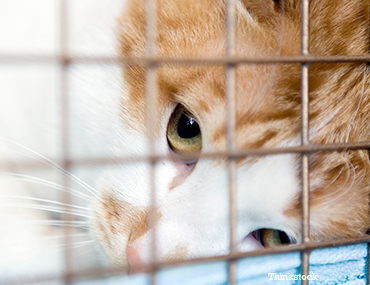
Dr. Ruth MacPete tells you how to give back to pet organizations this holiday season. For more from Dr. MacPete, find her on Facebook or at www.drruthpetvet.com!
The holidays are more than trees, tinsel, and presents. As Dr. Seuss’ Grinch realized, “What if Christmas, he thought, doesn’t come from a store. What if Christmas…perhaps … means a little bit more?” We all know that the holidays are about giving. They are about peace on Earth and goodwill to men. But shouldn’t the holiday spirit extend to all creatures great and small? What can you do to help animals in need this holiday season?
 There are many worthy charities to consider when making a donation this year. Here are just a few of the many deserving organizations:
There are many worthy charities to consider when making a donation this year. Here are just a few of the many deserving organizations:
- The Morris Animal Foundation is the world’s largest non-profit foundation dedicated to supporting research projects that benefit the health of all types of animals, from companion animals to wildlife and everything in between. Foundation-funded studies have led to the development of the first vaccine for feline leukemia, a new single dose contraceptive vaccine that may help control feral cat overpopulation, and promising treatments for kidney disease and asthma.
- Best Friends Animal Society is an animal welfare organization that accepts, cares for and often re-homes older, sick and behaviorally challenged animals. In addition to caring for animals at their large sanctuary in Utah, Best Friends Animal Society has started several national outreach problems aimed at reducing the number of animals euthanized in shelters across the country and promoting pet adoptions.
- The American Society for the Prevention of Cruelty to Animals (ASPCA),the Western hemisphere’s first humane organization, was set up to prevent cruelty to animals. The ASPCA has been instrumental in establishing humane laws, rescuing animals from abuse, and supporting shelters and other animal welfare organizations throughout the country.
- Guide Dogs for the Blind started in 1942 to provide guide dogs to wounded servicemen returning from World War II without their sight. The organization has grown tremendously and has now trained and provided over 10,000 service dogs free of charge to blind or severely visually impaired individuals since its beginning.
- The Wildlife Conservation Society (WCS) was initially founded in 1895 to help the American Bison survive. WCS works globally to save wildlife through global conservation, education, and science. They have conservationists around the world trying to save several amazing animals like tigers, gorillas, and elephants from extinction.
Keep in mind there are other ways to help animals besides making a monetary donation. Here are some things you can do to help animals:
- Donate your pet’s blood to a local pet blood bank. Your pet’s donation could save another pet’s life. Check with your veterinarian for more information about where to find a pet blood bank in your area.
- Donate any unused dog or cat food cans. Many pet stores around the country have food drives going on at this time of year. Your unused food can help feed a homeless pet.
- Donate old pet blankets, toys, bedding, etc., to your local shelter or rescue groups.
- Donate your time. Don’t underestimate the impact of your time. Most shelters rely on volunteers to walk their dogs, play with them, and love them. In addition to helping the shelter, you will enjoy your time bonding with these animals.
- Become a foster pet parent. Open your home and heart to a foster animal. By taking in a foster animal, you are providing a loving environment to animal that needs extra time or care before they can be adopted into their forever home.
There are many ways you and your family can contribute in this season of giving. Whether you donate money, food, supplies, or your time, you are making a difference in the lives of animals. No contribution is too small. Just think of the impact we can make if everyone took to the spirit of giving this holiday season.
If you have any questions or concerns, you should always visit or call your veterinarian – they are your best resource to ensure the health and well-being of your pets.
